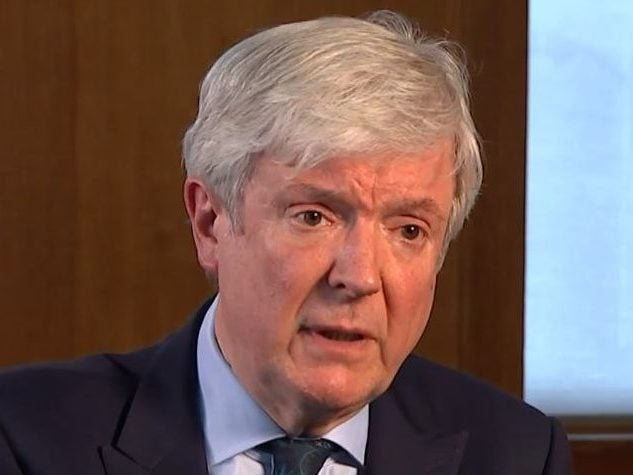
The head of the BBC has hit out at the “sickening” abuse directed at the broadcaster’s journalists throughout the general election as he called on social media platforms to “do more” to tackle the issue.
In a post-election message to staff, director general Lord Tony Hall said elections “always put the BBC’s impartiality in the spotlight”, with the corporation continuing to face criticism of its coverage.
“Social media offers a megaphone to those who want to attack us and makes this pressure greater than ever,” said Lord Hall. “The conspiracy theories that abound are frustrating.
“And let’s be clear – some of the abuse which is directed at our journalists who are doing their best for audiences day in, day out is sickening.
“It shouldn’t happen. And I think it’s something social media platforms really need to do more about.”
BBC political editor Laura Kuenssberg was called a “disingenuous plopcarpet” by Gavin and Stacey actor Matthew Horne during the BBC’s election coverage on Thursday night. He later apologised for the remark.
In the run-up to polling day the BBC faced criticism for its failure to secure an interview with Boris Johnson for Andrew Neil, despite the stalwart broadcaster having interviewed every other major party leader in the UK.
The corporation was also forced to admit its mistakes in using archive footage of Johnson laying a wreath on Remembrance Day at the Cenotaph, which elicited 2,000 complaints, and editing out laughter directed at Johnson in a clip of a Question Time leaders’ special used in a news bulletin.
In his message to staff, seen by Press Gazette, Lord Hall said the BBC’s aim throughout the campaign had been “to be on the side of the audience”.
He said that in a “febrile political environment this had been “no easy task” and thanked staff for an “amazing job”.
He went on: “In a frenetic campaign where we’ve produced hundreds of hours of output, of course we’ve made the odd mistake and we’ve held up our hands to them. Editors are making tough calls every minute of the day.
“But I don’t accept the view of those critics who jump on a handful of examples to suggest we’re somehow biased one way or the other.
“Achieving due impartiality means ensuring our coverage is fair and proportionate over the course of the campaign, and that’s what we’ve done. We’ve scrutinised all sides and all leaders. Of course not all the leaders have agreed to all the debates and interviews we wanted.
“I wish they had, but no broadcaster can force them, and we have sought to treat them all fairly. We should never be complacent about the challenges we face demonstrating our impartiality in today’s world.
“But I believe the past few weeks have proved that no one is doing more than the BBC to stand up for trust and integrity in news, and no one is working harder on the side of the audience.”
BBC News at Ten anchor Huw Edwards, who led the BBC’s overnight election coverage, has defended colleagues accused of bias and called out the “relentlessly vitriolic attacks” that took place.
The BBC’s election programming reached a total of 26.5m viewers across TV, radio and digital, the corporation has reported, with a record 27.3m browsers of the BBC News website in the UK.
Email pged@pressgazette.co.uk to point out mistakes, provide story tips or send in a letter for publication on our "Letters Page" blog
